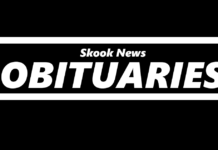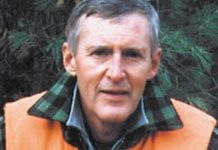EP life, friendship, academic EM

Dear John,
I see that you asked our residency listserv for tips on going back to academic practice. I haven’t been around the academic emergency medicine world in a long time, but I do have a couple of suggestions based on my memories and exposure to academics that might help you navigate this exciting transition. For starters, I suggest you practice leaning back in an office chair and napping without falling out of the chair. You are a tall, gangly individual, so this may require some training, but it will help you avoid the embarrassment of falling on the floor in a dead sleep.
Please remember that the upcoming generation of physicians are much smarter than we were. If I were you, I would practice giving evasive answers to questions so that you can quickly read about the topic or go to the restroom to watch a YouTube video. Examples include, “I could tell you, but why don’t you read about it and tell me?” “Did you undress the patient?” and “Get a fresh set of vital signs, and we’ll talk then.” If all else fails, make up some bizarre, eponymous disease and send them on a Google search, saying, “What? You haven’t heard of Jonston’s genital dystonia?” Then roll your eyes and “tsk, tsk” evasively.
I’m sure you hope to have time to pontificate and share your years of wisdom, so don’t forget to keep charming homespun tales handy: “Why, I remember back in ‘01 when….” (Be sure to pronounce it “aught one” to emphasize the age divide between our generation and that of your hip, well-educated students and residents.) Ask questions like, “Did I ever tell you about the way we used to do nasal intubations?” Say things like, “When I was your age, we didn’t have fancy cath labs. You people are spoiled.” Or this: “Back in my day, we had only just discovered the appendix!”
Also ask your wife and children to help you make a list of no-go words and phrases. Here are some of them: sonny, my boy, darlin’, sweetheart, young lady, “Are you brain-damaged?” “Run and get me a cup of coffee, scut monkey,” and “It’s Commies that are the problem, you know.” Remember too that no matter how angry consultants may make you, unleashing a torrent of profanity and threats is not as well accepted as it was back in the good old days of angry consultants.
From a technical standpoint, learn a few decision rules to throw around. There always seems to be a new one, and when I listen to continuing education podcasts, I sometimes feel as if I traveled through time and landed about a century in the future. I hear, “Well, the Crab-16 decision tree for marine envenomations suggests…,” or “If the patient’s STAB score is less than five, he’ll probably be fine going home with his chest tube in place.” I am not in academia but the dreaded rural community, so I can simply look these up (when the internet hasn’t been cut by a car crash, ice storm, or bands of Confederate guerillas).
Do not feel the need to keep those antiquated things called books nearby; nobody really reads them anymore, at least not in the paper form we did. Keep your computer and cell phone handy, however.
What you should do, what I charge you to do, is teach students and residents about more than medicine. They should learn about work-life balance, the importance of family, the essential nature of humor, and the necessity of taking a stand combined with a little fly fishing information and some cultural and political commentary thrown in for good measure.
I kid! I have known you since we were frightened youngsters of, what, 29? You’ll be a wonderful educator. And do you know why? Because you have lived the life and been at the bedside caring for the sick and dying, the crazy and the broken for nearly 30 years. Most importantly of all, you understand the fundamental algorithm of the specialty: sick versus not sick. All the rest flows from that decision, which you know well.
An unfortunate gulf lies between the community and academic emergency departments. The media and even many of our patients view physicians in large centers as inherently superior. They indeed have easier access to consultants and the latest technologies. I talk to physicians in teaching hospitals; they are very intelligent and capable.
On the other hand, those in the community and small hospitals are sometimes seen as doing work that’s somehow less sexy, less intense. But nothing could be further from the truth. Outside the hallowed halls, incredible diagnoses are made, and untold lives are saved by those whose most important credentials are simply “I have been here, and I remain here with my patients.”
We’re all one team really, and the sooner we realize it, the better off we’ll be. So, my friend, bridge that gulf. Academia will be lucky to have you. And remember, think first, then talk. Just saying.
Your friend,
Edwin
Dr. Leappractices emergency medicine in rural South Carolina and is an op-ed columnist for the Greenville News. He is also the author of four books, Life in Emergistan, available athttps://amzn.to/2T60WET, and Working Knights, Cats Don’t Hike, and The Practice Test, all available atwww.booklocker.com, and of a blog, http://edwinleap.com. Read his past columns athttp://bit.ly/EMN-Emergistan.
Credit: Source link































